Go Deep with Alycia Bella
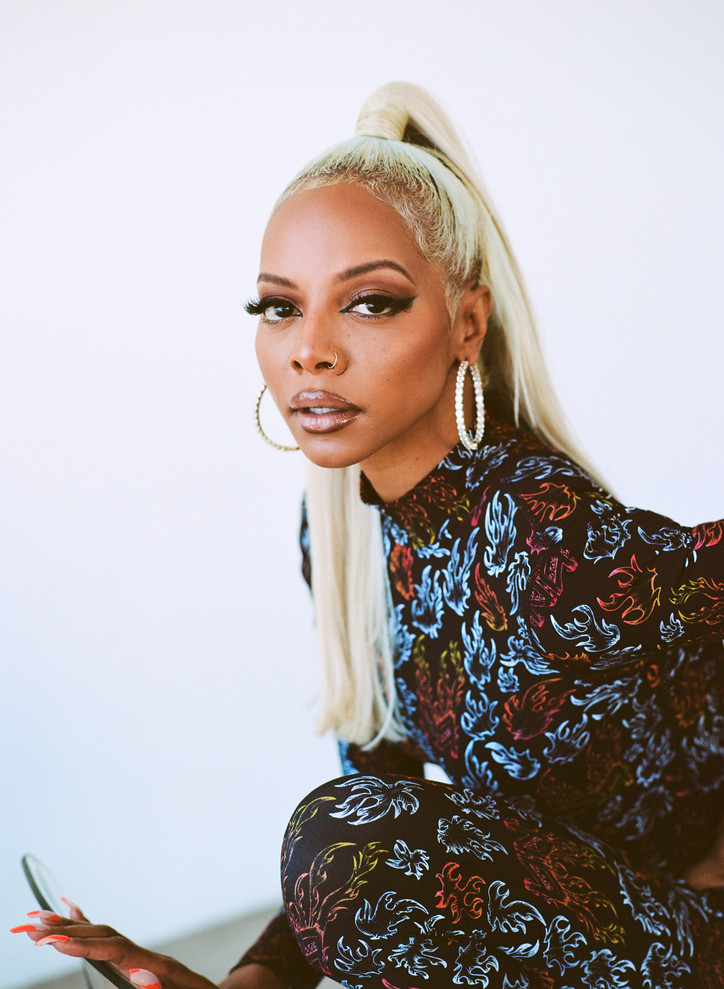
Reminiscent of early 2000’s soulful pop R&B with a modern twist that likens her to artists such as Solange, Alycia Bella’s unique sound can’t be boxed in. Check out our conversation with her below.
Where are you from?
I’m from the Bay Area — San Jose, California.
How would you say being from there has influenced your musical taste?
It’s funny, I have an interlude on my album of E-40 talking about how the Bay Area is the nucleus of everything. I don’t know if I’m biased, but I really believe that. ‘Cause, I mean, legendary people, from the Black Panther movement to Tupac, we make up our own words, we have our own culture. I feel like there’s an old school sensibility, like when I was growing up, like one of the best radio stations was KBLX. That’s where I fell in love with music. They played a lot of Earth, Wind, and Fire, Sade, Chaka Khan, just like all the old stuff. Then, you’d listen to the hip-hop radio stations, and they just had their own thing going. I’d say that’s where a lot of my influence came from. And then we had side shows, and that was all about the music and the energy. The Bay was definitely very influential. And then I also grew up in a town called Tracy, and like listened to country… It was a cow town and all we heard was country music.
And where is that?
Exactly.
So what was it like living there?
I hated it at first. I was maybe about 12 when I moved there, and went from a big city to a small town. There was maybe, like, 20,000 people there. There were only two high schools. It was an intense culture shock at first. It was hot as hell, ‘cause it was in the valley. Not to mention there were no black or brown people either. So I definitely felt very isolated and alone. It was hard to make friends. Actually terrible. I didn’t identify with anybody. But I think over time, I got used to it, and I started traveling to LA when I was sixteen, so I didn’t spend too much time in that space. But it definitely influenced a lot when it comes to music and just like who I am as a person. I had no rhythm, that was probably from not being around my people for a long time...
When did you start making music and why?
I fell in love with music when I was a kid because my mom has five sisters and they grew up in a singing group. Her oldest sister actually moved to LA and was a writer, and was working for Motown. She’d tell me all her stories. I just fell in love with it. It seemed larger than life. She would tell me about Prince and letting a dove off the stage at the Grammys. I was like, yeah, that’s what I want to do. Uncage birds on stages and wear boots and chaps.
Did you start singing or writing first?
It started with writing. My Aunt Olivia, who I was telling you about, she was very big on writing. Writing and the business side of it all. She’s like, It’s not all the glitz and glamour; you really have to be self sufficient and tell your story. So I started writing at about eight and grew up as an only child, so I spent a lot of time alone. That’s pretty much what I was doing with my time. I would write songs and force all my friends into singing groups with me. I wasn’t considering being solo at that time at all. We’d write songs, we’d practice, do all the talent shows… Perform for the family. Yeah, that was my hobby and dream, ever since then.
What is your writing process like now?
It’s interesting because what I do is I just write notes in my phone throughout the day. I’ll just have conversations with myself and write these notes — anything, epiphanies, a conversation. Then, I’ll go to the studio and find a track. I’ll go back to my notes and build a world around that. It always starts with notes.
Love the automatic thoughts that appear in the notes. Who are a few of your biggest musical inspirations?
It’s so funny, ‘cause they always change. A consistent one has always been Sade. Aaliyah, Prince, John Mayer… I’m obsessed with John Mayer. Those are my consistents.
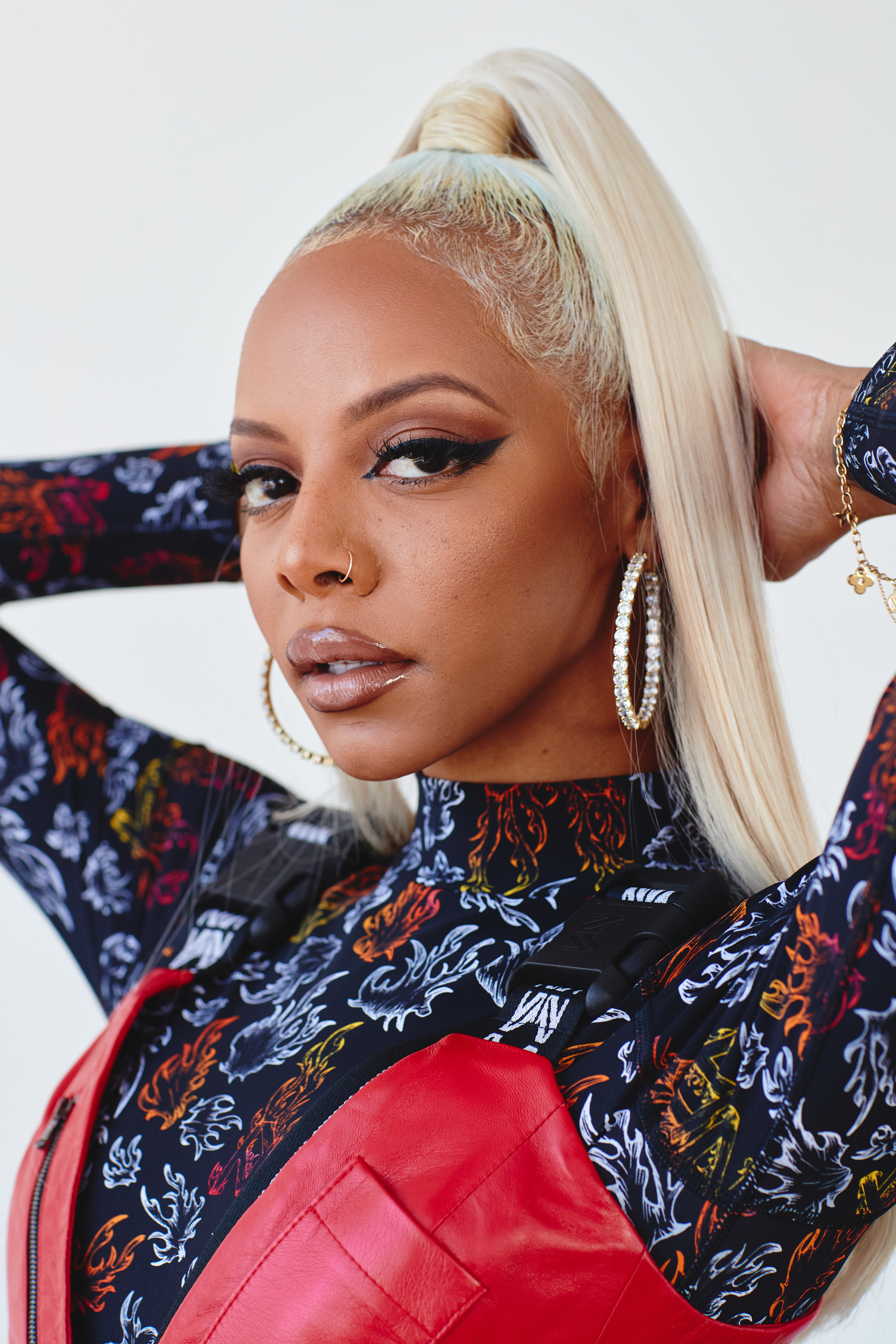
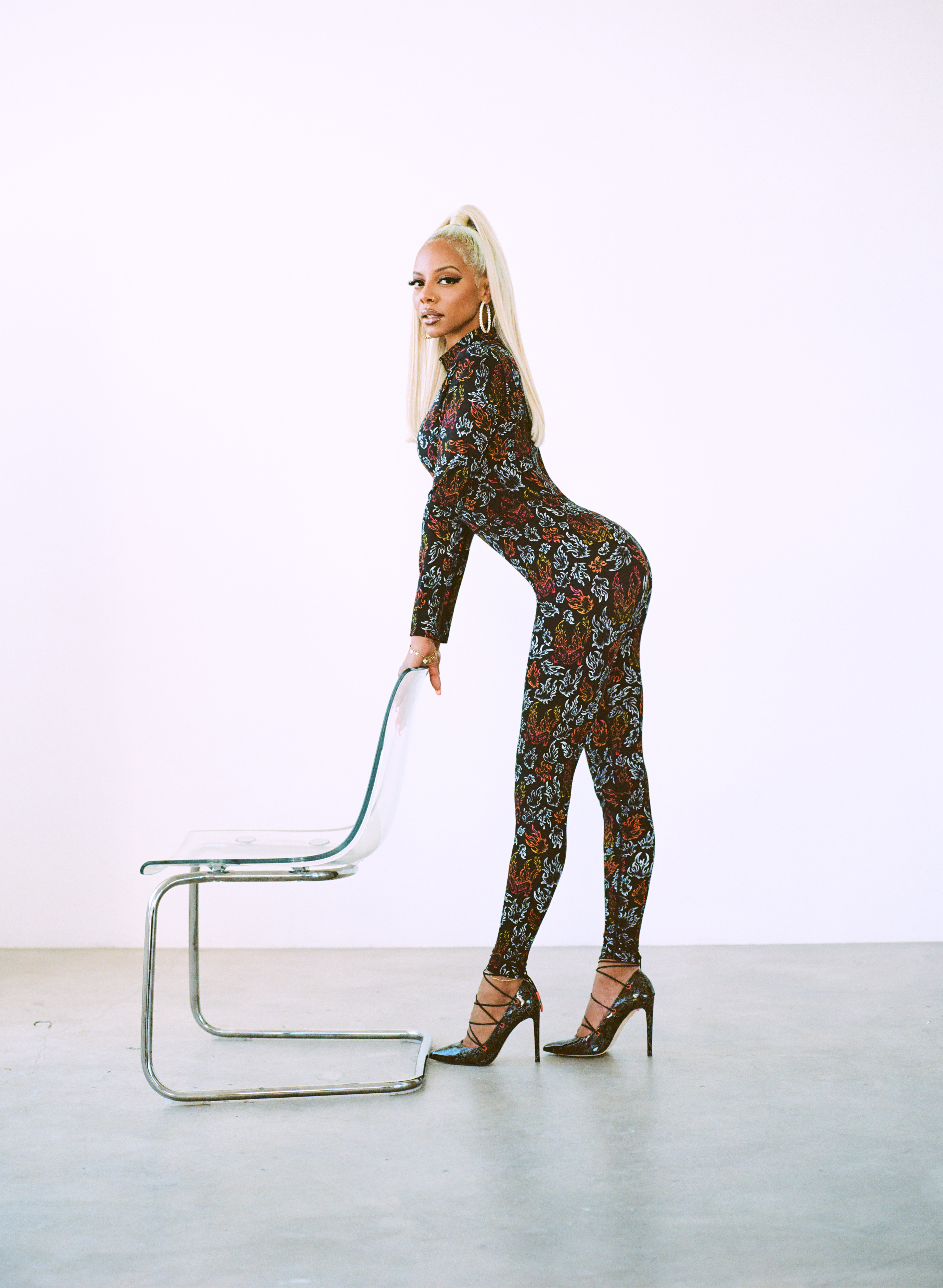
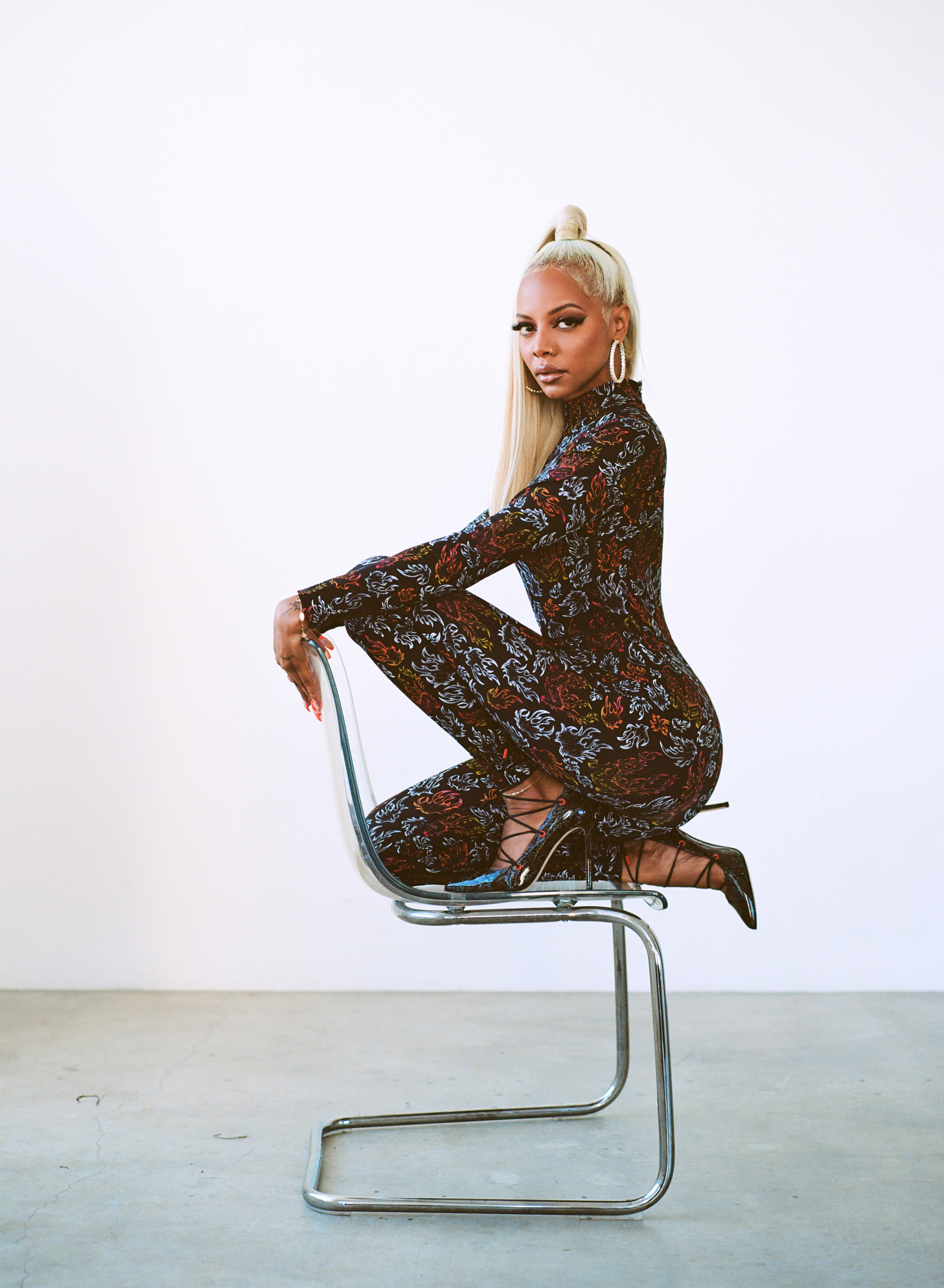
What themes are explored in your latest album, Muse?
I’m definitely romanticizing nostalgia. A lot of the stories are from the past. I incorporated an era from the past because I’m in love with the 1970’s and the 60’s. That’s a strong thing, visually. It’s a lot about love, loss, healing, growth… Muse was really an expression of this constant pattern I was in with being an empath and attracting narcissists. And I didn’t understand it at the time. The stories I wanted to tell were just so similar. Three different relationships but all so similar. It’s like, What is that? There’s a term “muse”, obviously, but at the same time I’m like, How can I create a world where muses are also empowered?
Dynamic?
Yes! Not just for somebody else. Kind of reclaiming my power and being my own muse in a sense versus just giving that energy to somebody else all the time.
Right. You had been using so much energy and time on these relationships that were draining your source of life. And this album kind of symbolizes, now, you putting all that energy towards yourself and your art. What would you say is your favorite song off the project?
I would probably say “Cue the Sun” is my favorite. Honestly, just the process of making it, how it came together… Me and one of my writer friends Merges wrote that one together. I already had the concept because I’d just watched “Truman Show”. And I was like, This is interesting. I want to tell this story because I relate to it, so I wanna make it my own. When I went in, the producer also already had the most beautiful melody going. Then, Merges is like, Oh, I have a line in my notes that says “Moon hanging like a disco ball.” And I’m like, That reminds me of “Truman Show”; that’s exactly what I came here to write about today. It was one of those synchronistic experiences, and it was the first of that sound that I created for the album. A lot of the songs were very vibey, and slow. I hadn’t tapped into that energy yet. So that was a burst of a new vibe. The song just means a lot to me because I feel like I told a story … It’s kind of like, you can’t really tell what I’m talking about, but you can feel it. You can feel it on a spiritual level. That’s how I feel about it. It’s the song I always go back to that I don’t get tired of.
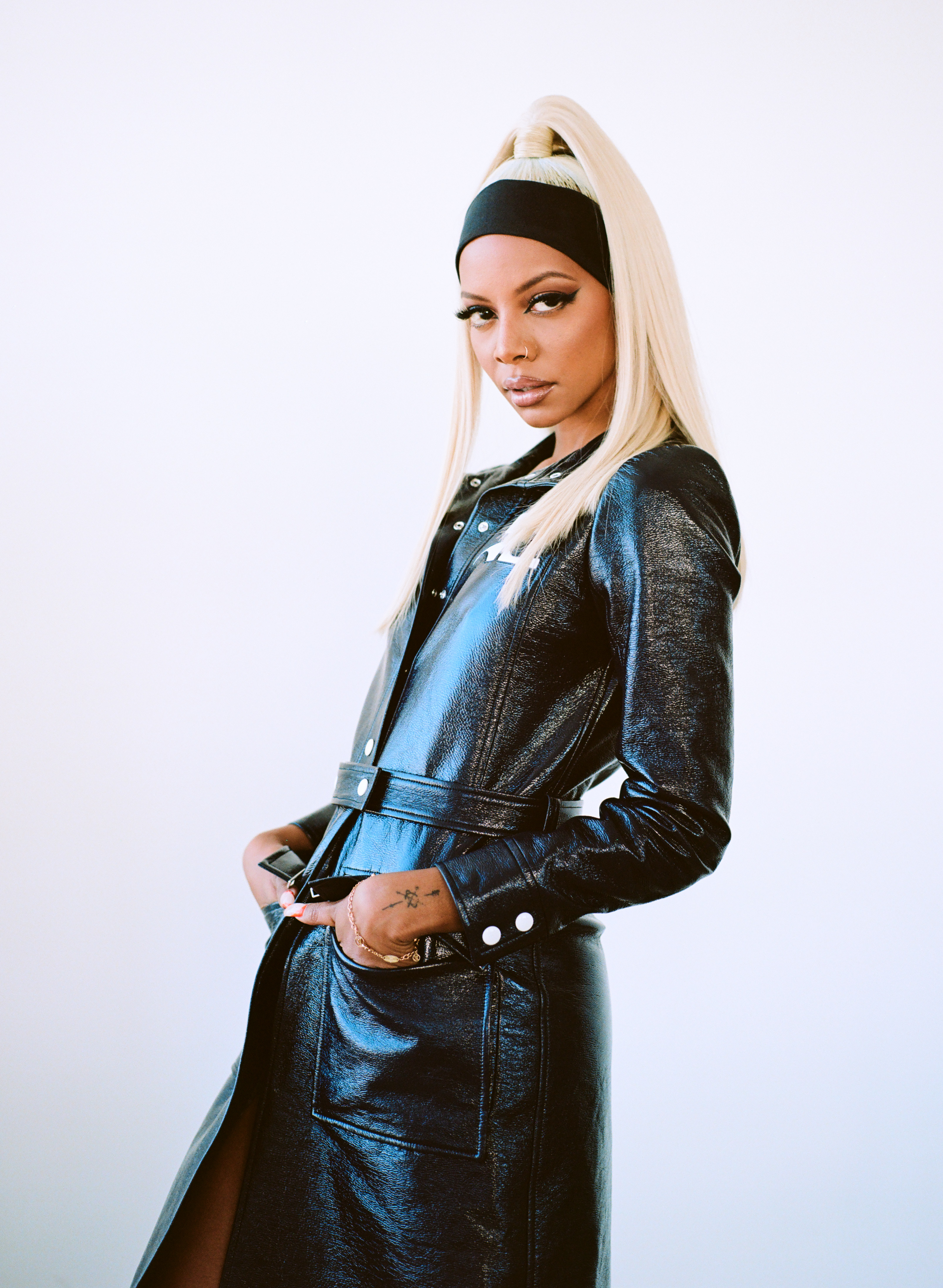
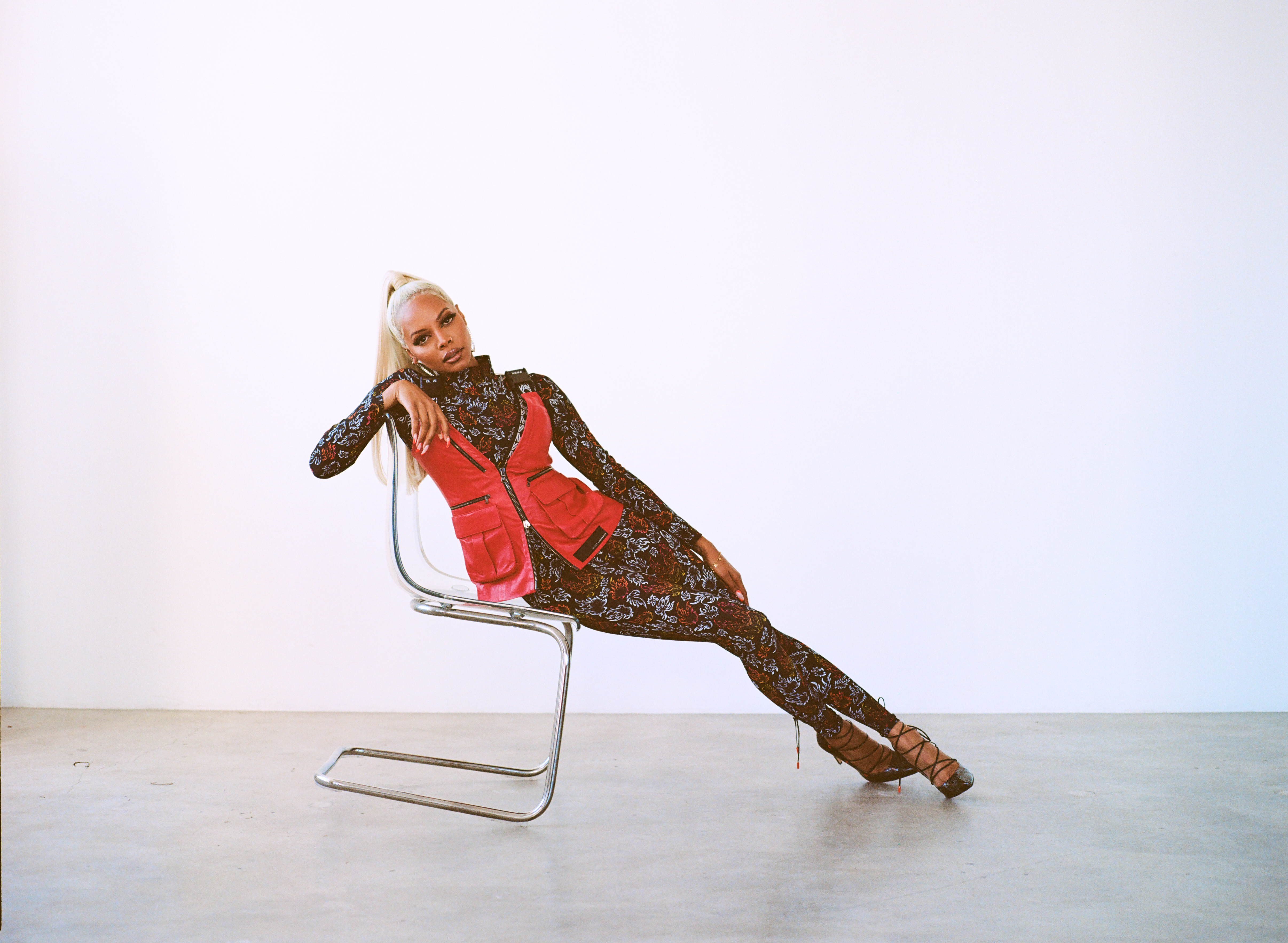
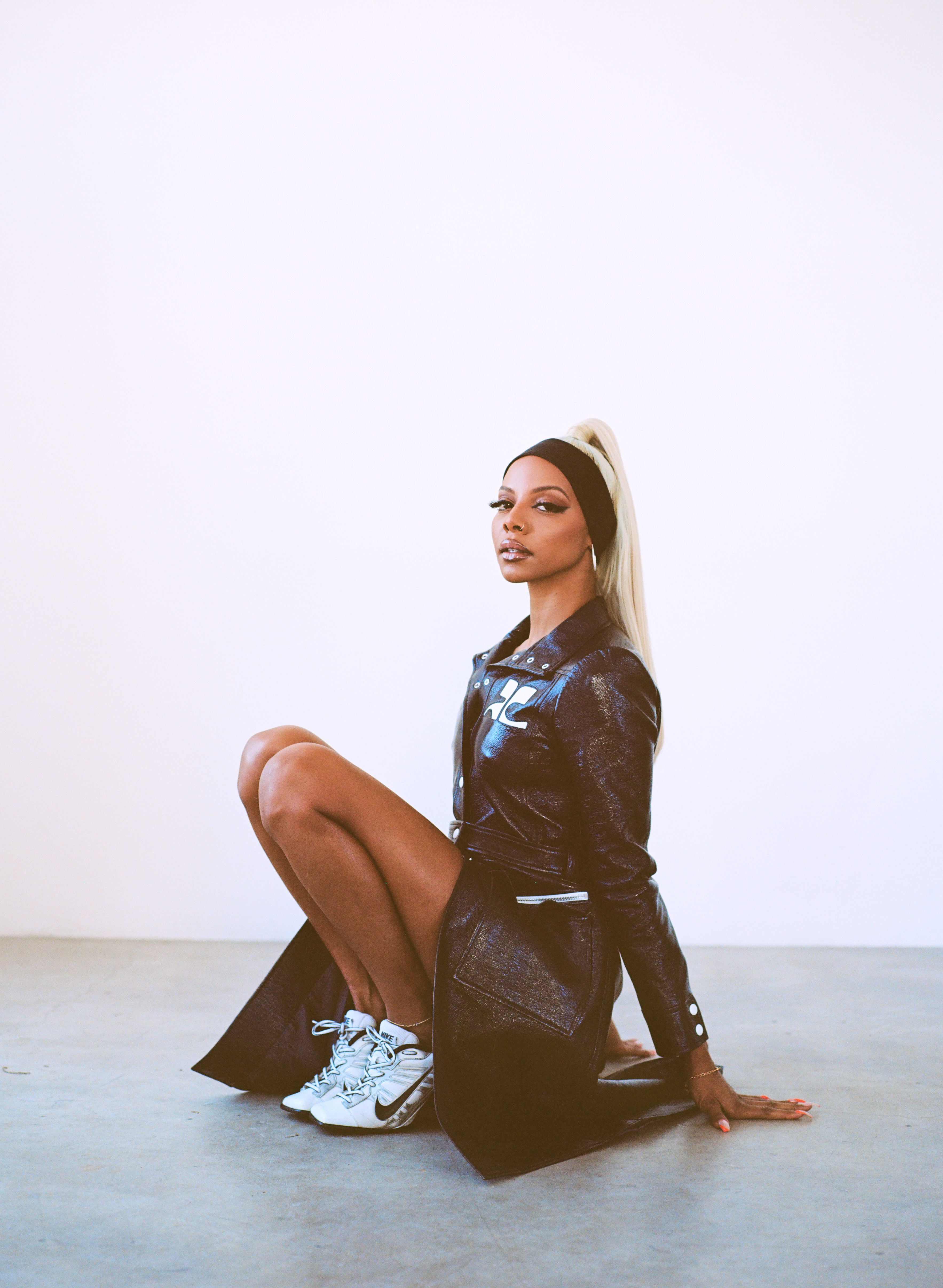
I know this body of work has allowed you to heal a lot of your trauma, how did that play out? What was it like to be healing through creating?
It’s interesting. When you’re in it, you can’t see it. The whole process was me trying to tell one specific story in the best way. I kept recreating the same song. In the end of the process, I realized I told one story but it was layered in multiple stories. In retrospect I realize, that’s a pattern. When I was able to see it from the outside, I felt proud of myself because I’d finally done something that really relied on my own story and myself. That was a big hurdle a long time ago. Because I’d be around so many amazing artists and great writers, just geniuses, and I was like "Hey, you’re better than I’ll ever be. You write it for me." I lost my sensibility to be honest, my own self confidence. Just being proud of myself, finally getting that out, that was part of healing. It instilled a deeper trust in me.
I understand. We don’t have to go too deep into these relationships you’ve referred to, but I feel like being with a narcissist — part of what they do through gaslighting and such, is they’ll destroy your own trust in yourself.
Yes!
They’re telling you things happened one way, and you wonder 'How am I feeling the way I’m feeling right now, if that’s the case?' It creates a distrust within your own self. Then you have to rebuild that trust.
Exactly. I’m so sorry that you can understand what I’m saying….
It’s alright! It’s amazing that you’ve rebuilt that trust in yourself through creating Muse. So, regarding the features (E40, Vince Staples). What was that like?
E-40 is like an uncle to everybody. Anybody that knows him loves him and admires him. He’s one of those OG’s that actually gives back! Back in 2015, I did a song and he hopped on it just off of us both being from the Bay and me asking. I’m like, What? That’s crazy, you’re a legend.
Finally, after I’d made this project, I wanted to circle back; all these features, besides Boogie, happened after everything was done. Like I said, I didn’t want to rely on anybody else. I wanted it to be about empowering myself. I didn’t want it to be like me getting the attention solely through features. So, I wanted to keep it light and just have them do interludes. Kinda sprinkle in this layer of edginess. This project is very emotional and vulnerable, but there’s another side of me. There’s some edge here. So E-40 and Vince can bring that edge for me.
And you didn’t want to be boxed in by the subject matter of Muse.
The space I’m in now is… I’ll say this: What I’ve learned after creating this album is that healing and maturity go hand in hand. Like, they’re kind of counterparts in a sense because a lot of the things I was doing were very immature. To take accountability for even being in those narcissistic relationships for so long. That was not tryna do the hard stuff, not wanting to do the hard work. Childlike nature.
So now I’m in a space where I’m like, Let’s make the hard decisions. Lets hone in on what’s actually important. I feel like I wasted a lot of time being boy crazy. Not trusting myself so looking for somebody else to have the answers. That’s a lack of maturity. Now I want to mature, and I’m not afraid to heal those child wounds. At first, it used to be, If I lose my child self, then that’s part of my creativity. I wanted to protect that. But now I see it in a way, that maturing is freedom. Maturing and healing is freedom. You can still have that childlike self, but you have to kind of treat her like how you would’ve wanted your parents to raise you.
I care about so much more. Black women, women in general, are way more dynamic than that. We’re not just counterparts to a man. I love my family so much. There’s not one song on there where I talk about that. I love the beach, I love traveling, I love time with myself, I love so many other things, and I want to look at the glass half full, moving forward.
Would you say that you don’t want to be viewed solely based on the subject matter of Muse?
Yes, absolutely.
People may take one album from an artist as everything that person is, but artists know that writing and song — making can exist as a caricature of yourself. You’re creating a world.
Even the approach in writing, when you go to the studio, you’re like, What will people relate to? Men! There’s so much more.
It’s challenging to write other things than love songs.
I don’t wanna just trauma bond with my audience. I want to heal them, too! I want to uplift them. I want them to feel me on a personal level. I’m someone who brings a lot of positive energy. Like you said, though, it’s easier to talk about relationships.
Enjoy the video for God, Drugs, and You below!